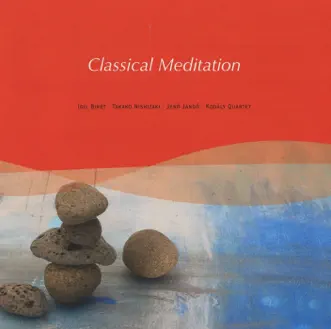Meditation Wiki
Meditation is a practice in which an individual uses a technique to train attention and awareness and detach from reflexive, "discursive thinking", achieving a mentally clear and emotionally calm and stable state, while not judging the meditation process itself.
Techniques are broadly classified into focused (or concentrative) and open monitoring methods. Focused methods involve attention to specific objects like breath or mantras, while open monitoring includes mindfulness and awareness of mental events.
Meditation is practiced in numerous religious traditions, though it is also practised independently from any religious or spiritual influences for its health benefits. The earliest records of meditation (dhyana) are found in the Upanishads, and meditation plays a salient role in the contemplative repertoire of Jainism, Buddhism and Hinduism. Meditation-like techniques are also known in Judaism, Christianity and Islam, in the context of remembrance of and prayer and devotion to God.
Asian meditative techniques have spread to other cultures where they have found application in non-spiritual contexts, such as business and health. Meditation may significantly reduce stress, fear, anxiety, depression, and pain, and enhance peace, perception, self-concept, and well-being. Research is ongoing to better understand the effects of meditation on health (psychological, neurological, and cardiovascular) and other areas.
Meditation by Géza Oberfrank, Budapest Failoni Chamber Orchestra, İdil Biret, Norbert Kraft, Nicholas Ward, Northern Chamber Orchestra, Béla Drahos, Nicolaus Esterházy Sinfonia, Jenő Jandó, Jeno Kevehazi, Jozsef Kiss, Jozsef Vajda, Bela Kovacs, Janos Balint, Nora Mercz, Klára Körmendi, Takako Nishizaki, Oliver von Dohnányi, Capella Istropolitana, Anthony Camden, John Georgiadis, London Virtuosi, Kodály Quartet, Mátyás Antal & Concentus Hungaricus Meditation album songs Meditation comments Meditation album credits Meditation reviews listen Meditation



